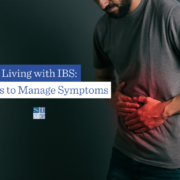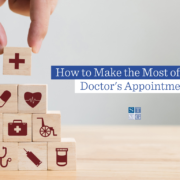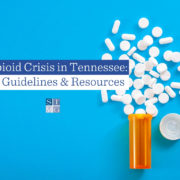Get Help for COPD With a Pulmonologist In Nashville
More than three million people in the U.S. have chronic obstructive pulmonary disease (COPD). This group of progressive lung diseases, which includes emphysema, refractory asthma and chronic bronchitis, causes breathlessness and other symptoms. While serious, COPD can often be managed with the right diagnosis and treatment. That’s where the pulmonologists at St. Thomas Medical Group in Nashville come in.
What Are the Symptoms of COPD?
COPD symptoms don’t typically occur until damage has already been done to the lungs. Classic signs and symptoms include:
- Wheezing
- Tightness in the chest
- Shortness of breath (especially when exercising)
- Fatigue/lack of energy
- Chronic cough
- Having the need to clear your throat upon waking in the morning
Some individuals may experience additional symptoms, such as swelling in the ankles, cyanosis (blue discoloration of the lips or fingernail beds) and unintended weight loss.
How Do I Know If I Have COPD?
If you have difficulty breathing or experience any of the above symptoms, see a doctor for an evaluation. Only a physician can diagnose COPD. This disease is frequently misdiagnosed, which is why it’s important to see a pulmonologist familiar with COPD and other respiratory disorders.
In diagnosing COPD, your pulmonologist may order one or more of these tests: chest x-ray, lung function test or CT scan. (This list is not comprehensive.)
COPD Treatments | Pulmonologists in Nashville
If you currently smoke, quitting will be one of the first recommendations your provider will make for treating COPD. Continuing to smoke will worsen your chronic obstructive pulmonary disease.
Other treatments include…
- Medication
- Lung Therapies
- Surgery
Medication for COPD
There is a wide range of medications available for COPD. Some medications, such as bronchodilators or steroids, may be inhaled. Others are taken orally; these include oral steroids, theophylline, and antibiotics (for use in treating respiratory infections).
Lung Therapies
If you have moderate or severe COPD, your pulmonologist may recommend oxygen therapy for raising the oxygen levels in your blood; many of these devices are lightweight and portable, while others are only used while sleeping.
Surgery for COPD
If more conservative therapies are not delivering the results needed, then your pulmonary specialist may recommend surgery as a last resort. Lung volume reduction surgery (just one example) can make more room in your chest cavity for healthy lung tissue to expand. Additional surgical therapies may be available, depending on the specifics of your COPD.
See a Pulmonologist In Nashville at St. Thomas Medical Group
Schedule an appointment with a pulmonologist at St. Thomas Medical Group, conveniently located at the intersection of Green Hills, Sylvan Park and Belle Meade. Call +1 (615) 964-5864.










